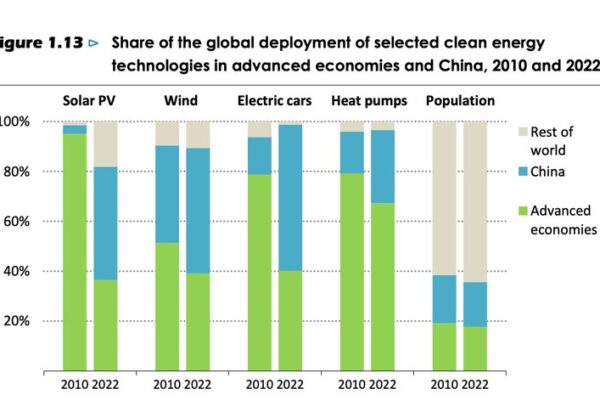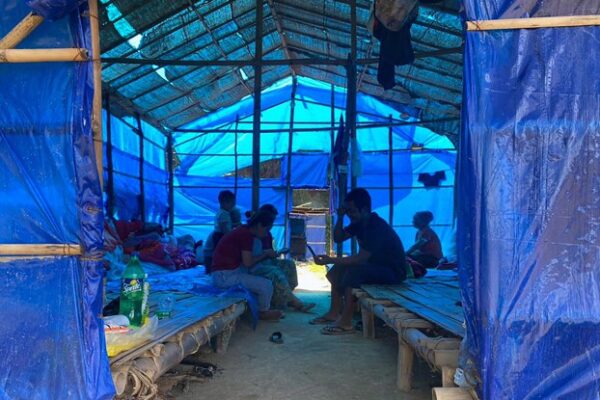A former governor of China’s central bank has called on the country’s leaders to relax “hukou” household registration rules to allow people to move into cities as the leaders struggle to boost a flagging property market and stimulate domestic consumption. Former People’s Bank of China Gov. Yi Gang called in a Sept. 19 article published by a national political advisory body for policy measures to boost consumption, including pressing ahead with ongoing urbanization plans by cutting through the red tape that prevents people from easily moving to live and work in other cities. Noting that the post-zero-COVID recovery in China remains lackluster, Yi called for “city-specific policies” to boost demand for housing, including easier loan terms for residential landlords, and financial subsidies to cash-strapped local governments to enable them to buy up empty housing stock as affordable rented housing. “Some scholars have estimated that reform of the household registration system can boost consumption among migrant workers and new arrivals to a city by 23%,” Yi wrote, in a reference to the “hukou” system that limits access to services like healthcare and schooling, as well as the right to buy property, to natives of a given area. Yi Gang, former People’s Bank of China governor, called in an article this month for policy measures to boost consumption. Credit: Lintao Zhang/Getty Images file photo The authorities have rolled out limited reforms to the system, which makes it hard for people to put down roots anywhere other than their hometown. In recent years, they have removed registration restrictions from all locations in the eastern province of Zhejiang except the provincial capital in July, and lifted hukou restrictions across the whole of Jiangxi and Shandong provinces in 2021. Abolishing barriers But other prominent commentators have taken it further. Beijing University of Science and Technology professor Hu Xingdou called in 2017 for an end to the hukou system, as the biggest, “first-tier” cities like Beijing and Shanghai attract far more wealth and resources than other areas, increasing inter-regional inequality. Yi, who still sits on the standing committee of the Chinese People’s Political Consultative Conference that advises the government, appeared in his article to be cautiously agreeing with this approach, suggesting that many minds in the government system think that Beijing needs to do more to inject life into the economy. “It will be necessary to provide better protection for migrant workers in housing, medical care, children’s education, social security and other aspects while working in cities,” he wrote. “At the same time, we also need to pay attention to maintaining a certain degree of mobility of labor between urban and rural areas, between different cities, and between the east and west,” he said, adding: “This is also a way to bake stability into the Chinese economy.” China’s household registration system limits access to services like healthcare and schooling, as well as the right to buy property, to natives of a given area. Credit: Public domain Ren Liqian, who manages China investments at U.S.-based WisdomTree Asset Management, said via X that while she agrees with hukou reform, she was less sure whether it would boost consumption. “While the current reforms to the household registration system will have some economic benefits, they definitely won’t pay huge economic dividends,” Ren wrote. “This may not be good to hear, but I can afford to be honest because I’m not in charge.” Beijing is under huge pressure to find ways to improve economic performance, U.S.-based economist Li Hengqing said. “Everyone from the Chinese Communist Party Central Committee to the State Council is feeling the pressure,” Li said. “With the exception of [party leader] Xi Jinping, they all feel that poor economic performance is responsible for social unrest and growing public dissatisfaction.” While the government wants to launch an all-out effort to boost the economy, it can no longer turn to massive spending on local infrastructure as a way to do this. “The central government’s credit is very low right now, and there are a number of debts it is finding hard to repay both principal and interest on by maturity, so eventually bad debts will appear,” Li said. “So that means that the cost of financing [a stimulus package] would be very high.” Wider dissatisfaction? U.S.-based economist Zheng Xuguang said Yi’s article hints at wider dissatisfaction with Xi Jinping’s current policies among party elders. But he said Yi’s suggestion was unlikely to have much of an impact in the face of dwindling exports and plummeting foreign business confidence. “Investors have been pessimistic about China’s political situation and Sino-U.S. relations for a long time, which means there is no hope of a rebound in investor confidence or in consumption,” Zheng said. A worker pulls a cart of elevator parts at a factory in Haian city, in eastern China’s Jiangsu province on Sept. 5, 2023. Credit: AFP “I think the party elders are likely unhappy, but Xi Jinping doesn’t care very much … they feel that they have to raise it, but party elders no longer have much of a say in politics,” he said. Cong Liang, deputy director of China’s National Development and Reform Commission, was resolutely upbeat during a news conference in Beijing on Wednesday, saying China has already survived two financial crises, and will bounce back again. “Positive factors in China’s economy are accumulating, and naysayers will be disappointed yet again,” Cong said in comments paraphrased by state news agency Xinhua. However, Cong also acknowledged that China’s economy faces “a lot of difficulties and challenges.” Li said the upbeat news conference would only widen the disconnect between what the government says and what people hear. “What [Cong] said flew in the face of people’s actual experience, which means the government loses even more credibility,” Li said. “After time, people will regard them negatively – so that if they say go east, then everyone else will look to the West.” “Even if the government told the truth, people would still assume the opposite was true,” he said. Translated with…






